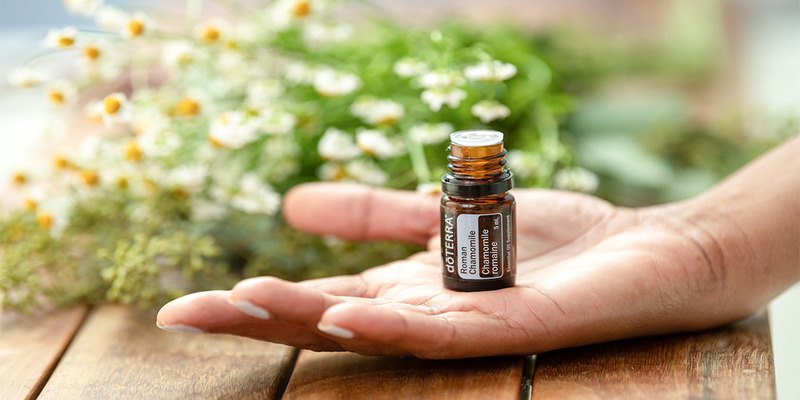Do you ever wake up in the middle of the night, struggling to take a breath due to an annoying dry cough? This can be a surefire way to lose sleep and greatly impact your daily routine. A persistent dry cough at night is uncomfortable and disruptive; however, steps you can take may help prevent it from occurring or reduce its frequency and intensity.
In this blog post, we will offer helpful tactics to stop a dry cough at night so you can get back to enjoying restful nights of deep sleep!
Nighttime Dry Cough Causes
- Allergies: Allergic reactions to dust, pollen, pet dander, or other airborne irritants can cause a dry cough, especially when lying at night.
- Postnasal drip: Excessive mucus production due to conditions like sinusitis or a cold can lead to postnasal drip, where mucus drips down the throat, triggering a cough. This cough may worsen at night when lying down.
- Asthma: Nocturnal coughing is a common symptom of asthma. The cough may be triggered by exposure to allergens, cold air, or exercise.
- Gastroesophageal reflux disease (GERD): Acid reflux occurs when stomach acid flows back into the esophagus, irritating. This can lead to a dry cough, particularly at night when lying down.
- Respiratory infections: Viral or bacterial infections such as the common cold, bronchitis, or pneumonia can cause a dry cough, which may worsen at night.
- Medications: Some medications, particularly those used to control blood pressure, can cause a dry cough as a side effect.
- Chronic obstructive pulmonary disease (COPD): People with COPD may experience a persistent dry cough, particularly at night, due to inflammation and narrowing of the airways.
- Environmental factors: Dry air, especially during the winter when heating systems are used, can irritate the airways and lead to a dry cough.
Dry Cough Nighttime Home Remedies

Certainly! Here are some home remedies that can help alleviate a dry cough at nighttime:
Menthol cough drops
Menthol cough drops can temporarily relieve the throat and suppress the cough reflex. They work by numbing the throat and reducing irritation. However, choosing sugar-free cough drops is important to avoid potential dental issues.
Humidifier
Adding moisture to the air with a humidifier can help relieve a dry cough, especially if the cough is caused by dry air. The increased humidity can soothe the throat and reduce irritation. Ensure regular humidifier cleaning to prevent the growth of bacteria and mold.
Rest
Getting sufficient rest allows your body to recover and heal. It also helps reduce stress on your respiratory system, which can contribute to coughing. Aim for a good night's sleep to support your overall well-being.
Avoid irritants
Avoid environmental irritants such as smoke, strong fumes, or dust, as they can further irritate the throat and trigger coughing. Minimizing exposure to these irritants can help alleviate the symptoms.
Honey
Honey has natural soothing properties that can help relieve a dry cough. Mix a teaspoon of honey in warm water or herbal tea and drink it before bedtime. Note that honey should not be given to children under one year of age due to the risk of botulism.
Gargle with warm salt water
Gargling with warm salt water can help soothe the throat and reduce inflammation. Dissolve half a teaspoon of salt in warm water and gargle for 30 seconds before spitting it out. Repeat this a few times a day, especially before going to bed.
Drink plenty of fluids
Staying hydrated helps moisten your throat and alleviates a dry cough. Drink plenty of water, herbal tea, or warm liquids like broth or soup to soothe your throat and thin mucus secretions.
Manage GERD
Managing the underlying condition is crucial if your dry cough is caused by gastroesophageal reflux disease (GERD). Avoid foods and beverages that trigger acid reflux, such as spicy and fatty foods, caffeine, and alcohol. Eat smaller, more frequent meals, and avoid lying down immediately after eating. Elevating the head of your bed can also help reduce symptoms.
Dry cough At Night Treatment

When treating a dry cough at night, various over-the-counter medications can provide relief. Here are some common options:
Decongestants
Decongestants help reduce nasal congestion and postnasal drip, which can contribute to a dry cough. They work by shrinking the blood vessels in the nasal passages, which can alleviate the irritation that triggers coughing.
Decongestants are available in both oral and nasal spray forms. However, they should be used cautiously and for short periods, as prolonged use can lead to rebound congestion and other side effects.
Cough suppressants
Cough suppressants, also known as antitussives, can help reduce the frequency and intensity of coughing. They work by blocking the cough reflex in the brain. The active ingredient most commonly found in cough suppressants is dextromethorphan (DM).
It is available in syrup or tablet form. It's important to follow the recommended dosage and avoid using cough suppressants if you have a productive cough (coughing up mucus), as suppressing the cough can hinder the body's ability to clear the airways.
Expectorants
Expectorants help loosen and thin mucus, making it easier to cough up and clear from the airways. This can be beneficial if your dry cough is due to excessive mucus production or if you have a productive cough.
The most common expectorant available is guaifenesin, typically found in cough syrups or tablets. Drinking plenty of fluids when using expectorants to help thin the mucus is important.
When To Contact a Doctor
It's important to seek medical attention and make an appointment with a doctor if you experience a dry cough with any of the following symptoms:
- Shortness of breath: If your cough is accompanied by difficulty breathing or a feeling of breathlessness, it could be a sign of a more serious underlying condition that requires immediate medical attention.
- Fever: A persistent dry cough accompanied by a fever may indicate an infection or an inflammatory condition that needs medical evaluation. This is particularly important if the fever is high or accompanied by other concerning symptoms.
- Chest pain: If you experience chest pain and a dry cough, it could indicate an underlying cardiac or respiratory issue. Chest pain should always be taken seriously and promptly evaluated by a healthcare professional.
- Coughing up blood: Coughing up blood, even in small amounts, is a serious symptom that warrants immediate medical attention. It could indicate various conditions, including infections, lung disorders, or lung cancer.
- Unexplained weight loss: If you have a persistent dry cough and are experiencing unexplained weight loss, it could indicate an underlying health condition that requires evaluation. Unintentional weight loss can be a symptom of various underlying medical issues and should not be ignored.
These symptoms can be signs of more serious conditions, and it's important to consult a healthcare professional for proper evaluation, diagnosis, and appropriate treatment. They will be able to assess your symptoms, conduct further tests if necessary, and provide guidance on the best course of action.
FAQs
How do I stop an uncontrollable dry cough at night?
A dry cough at night can be disruptive and uncomfortable. To reduce the frequency and intensity of a dry cough, try increasing indoor humidity with a humidifier, getting sufficient rest, avoiding irritants, drinking plenty of fluids, managing GERD symptoms, taking an over-the-counter decongestant or cough suppressant, or trying a home remedy like honey or gargling with warm salt water.
Can I take over-the-counter medication to stop a dry cough at night?
Yes, you can take over-the-counter medications such as decongestants or cough suppressants to help reduce the frequency and intensity of dry cough at night.
Why is dry cough worse at night?
A dry cough is often worse at night due to decreased saliva production. Saliva helps keep the throat moist, so when there is less of it, the throat can become irritated and inflamed, triggering coughing.
Conclusion
A nighttime dry cough can be an irritating and disruptive thing to encounter. However, there are steps that you can take to alleviate the symptoms of dry cough at night. Utilizing home remedies like drinking honey, using steam inhalation or a humidifier, and taking over-the-counter medications can help subside the effects of a dry cough. If those methods do not work, contact your doctor for further guidance.

What is Sebum
Nov 14, 2023

Benefits of Kale
Jan 30, 2024

How Many Calories Should You Eat Per Day To Lose Weight
Feb 02, 2024

What is Right Atrial Enlargement
Dec 30, 2023

What is Mild Autism
Nov 02, 2023

Bridging the Gap Between Treatment and Recovery: Effective Strategies for Transition
Sep 04, 2024

Benefits of Red Sandalwood
Oct 11, 2023

Why Should You Choose A High-Deductible Health Plan?
Jan 13, 2024



